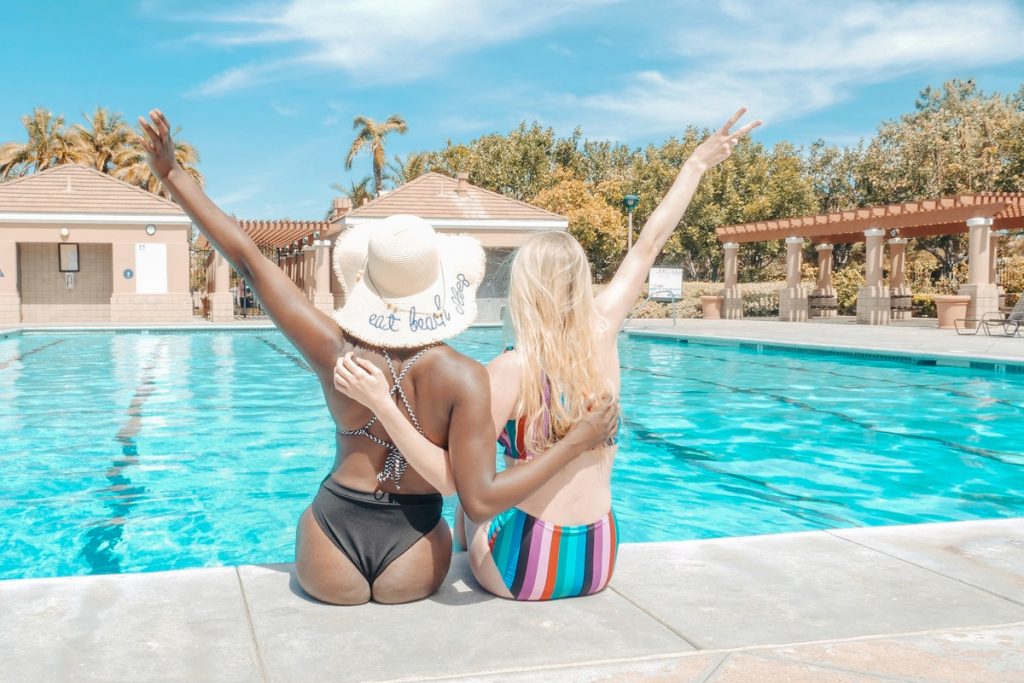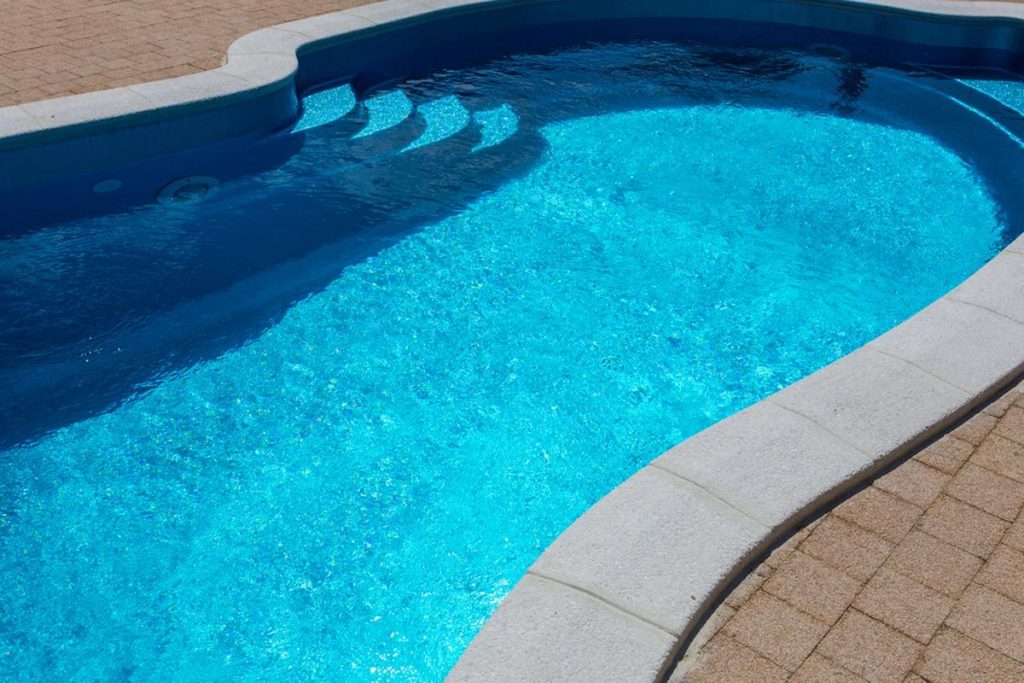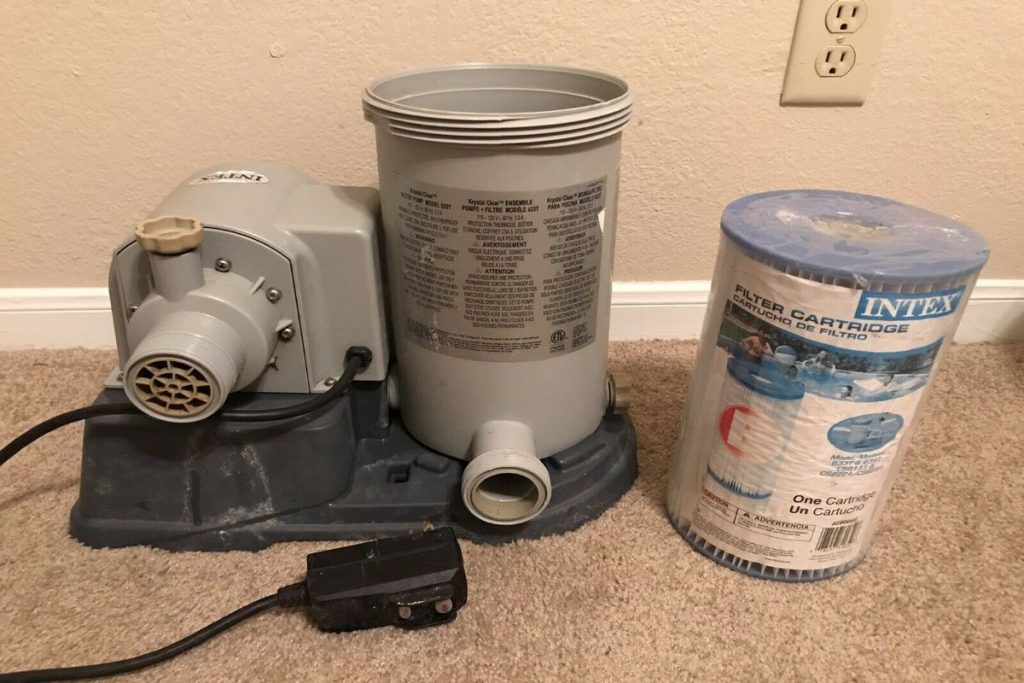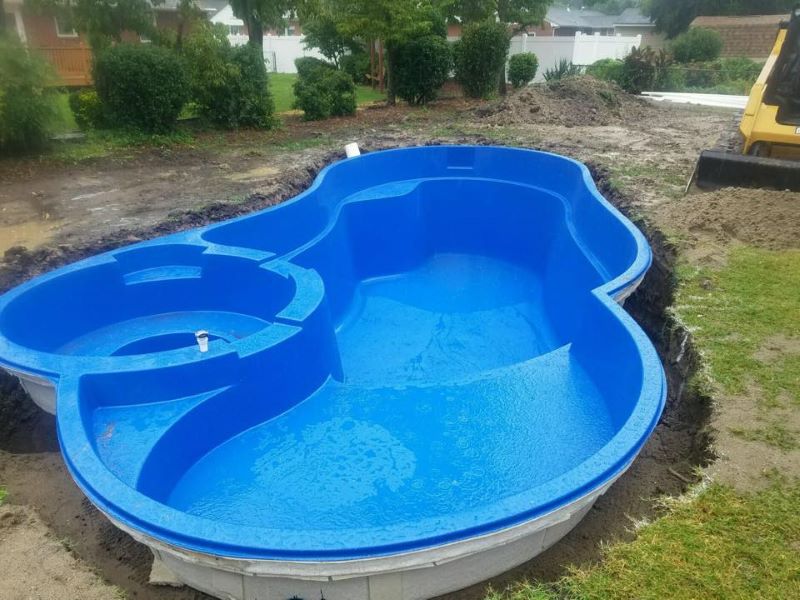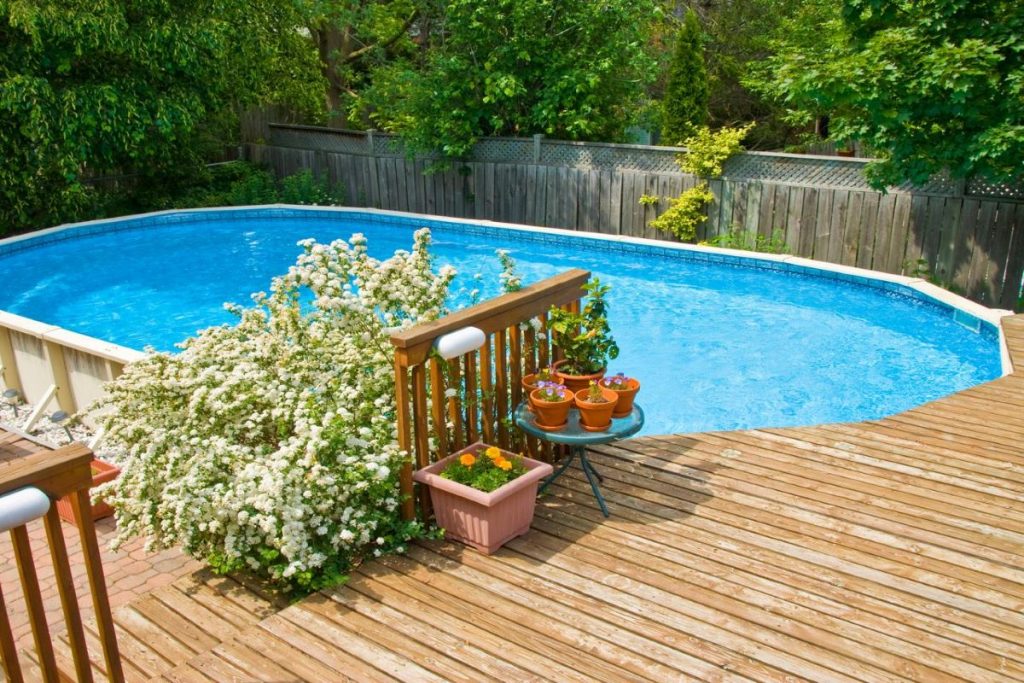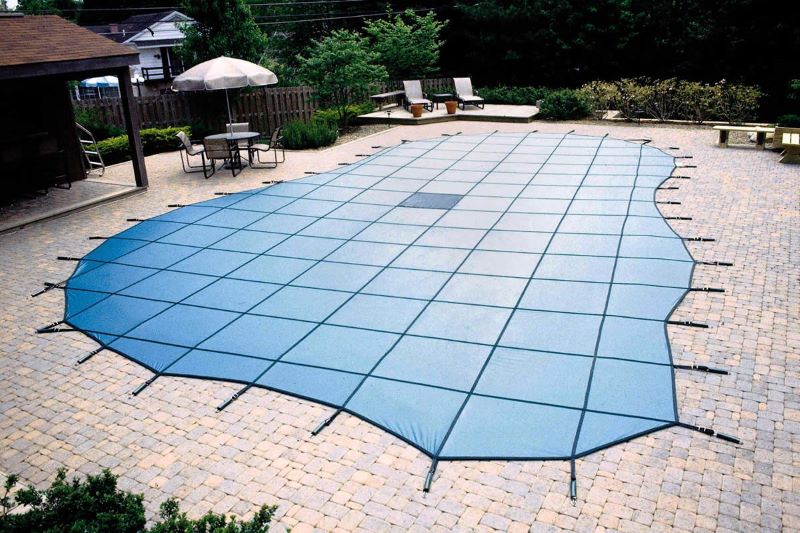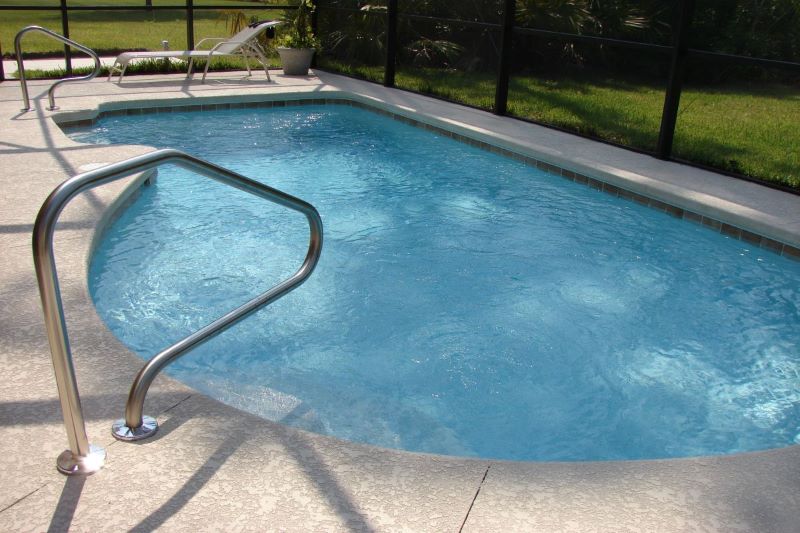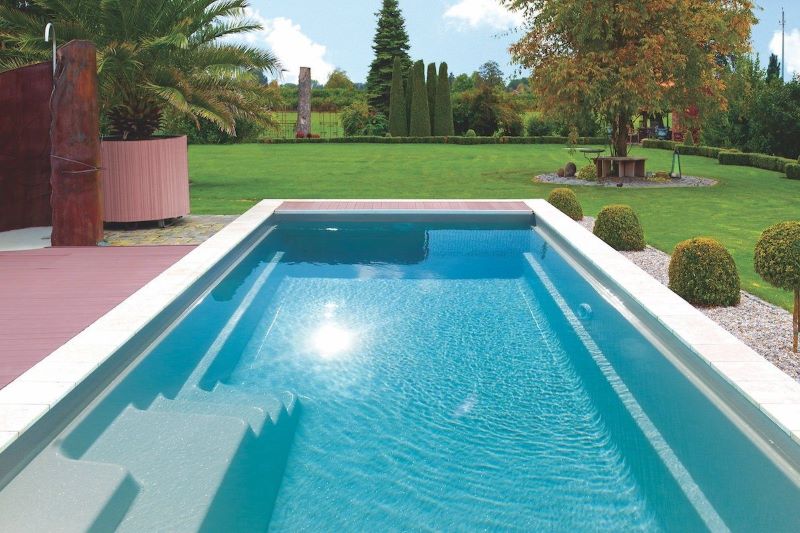Table of Contents
There are a lot of reasons to build a pool in a home. Many enjoy the calming effect of water and want an escape from everyday life, or they may be interested in adding value to the property for resale purposes. No matter what your reasons are, you must find a swimming pool type that will suit your needs well.
To help make this decision easier we have compiled some tips on what to consider when choosing the right type of swimming pool for your needs. We’ll also look at other things to look out for when choosing a pool.
Pool Types for Home Use
There are several types of pools to choose from. Each type has its benefits with the right one coming down to personal preference as well as budget constraints.
In-Ground or Above Ground?
The first question you need to ask yourself when choosing a swimming pool is: in-ground or above ground?
First and foremost, this decision will be based on your budget. In general terms, an in-ground pool is more expensive than an above-ground one but it also has the advantage of having better insulation properties as well as requiring less maintenance work.
In-ground pools are usually deeper and more spacious than above-ground pools, which means you can enjoy a greater variety of water sports. An in-ground pool also provides a sense of luxury as it has the look and feels of an actual swimming pool thanks to its unique shape. On the other hand, if cost is your main concern then an above-ground pool is the perfect solution.
An above-ground pool does not have insulation properties but it can offer you a quick and easy way to install it without too much hassle involved. Above-ground pools are also more budget-friendly than in-ground ones, even though they require adjustments like adding water once or twice a week. Overall, an above-ground pool usually offers a more limited range of water sports and activities but it is the perfect solution for anyone who does not wish to invest too much money into their swimming pool if they do not routinely use it.
Infinity Pool
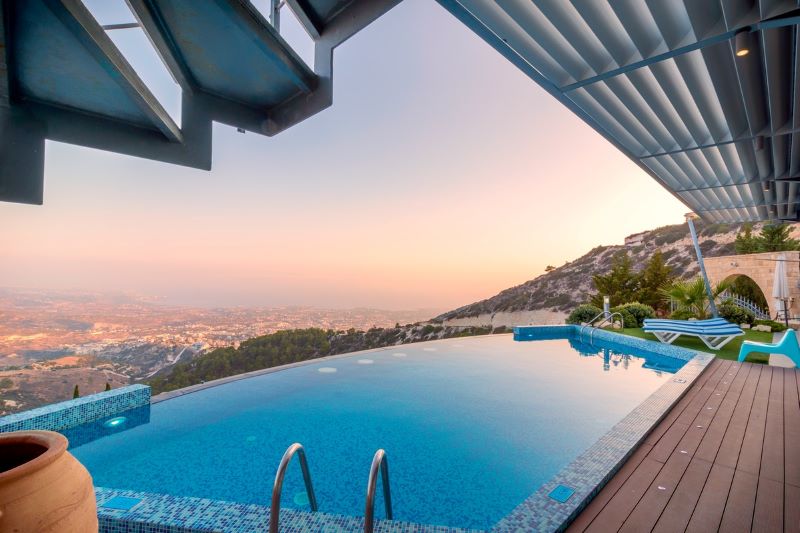
An infinity pool is a beautiful addition to any home. The name comes from the way that it appears to flow into an infinite horizon. They are built in all different shapes and sizes, but they tend to have very clean lines due to their ability to blend seamlessly with natural surroundings. Infinity pools work well both indoors and outdoors so you can enjoy them all year long.
The disadvantage to infinity pools is that they are expensive and difficult to install. Before you begin the process of choosing an infinity pool for your home, consider whether it will work with your budget and if you have enough space in the yard to accommodate such a large feature.
Cocktail Pool
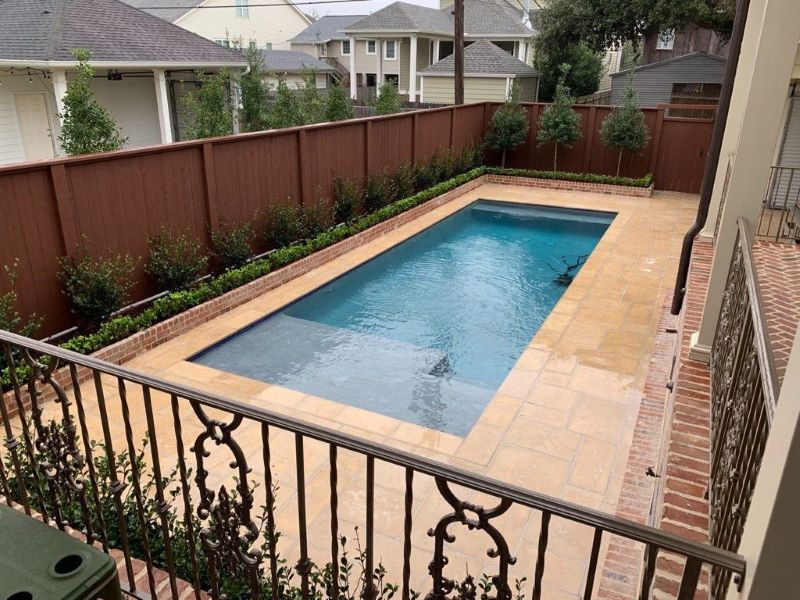
This is a great choice for homes with little space. The average pool size of these pools ranges between 15 and 20 feet in diameter, making them ideal for small yards or patios. One of the most popular styles is round ovals with sharp corners which can be placed up against any wall without protruding into your yard at all. They are easily accessible and simple to install. Another advantage is that they are designed for easy storage, so if you live in a colder climate where your pool can be taken down during winter months this might prove invaluable as those pools which cannot be disassembled may freeze solid, damaging or even cracking the structure.
The drawbacks might be the relatively high cost of materials and installation. It is also important to know that they are not as durable as their rectangular counterparts, which means you’ll need regular maintenance if you want your pool to last long enough for its initial investment to pay off.
Solarium Swimming Pool
The solarium pool is a great choice. These pools are typically at least four feet deep, with no lifeguard on duty, they require less supervision. They may also be somewhat more expensive to install and maintain than other types of swimming pools, but they can provide hours of entertainment for your family members throughout the year.
Natural Swimming Pool
Natural swimming pools are becoming more and more popular in the United States. These swimming pool types provide a healthy environment for swimmers to enjoy all year round, without having to worry about chemicals ruining their health or safety underwater.
The disadvantage of a natural pool is that they require more maintenance than other pools. Because there are no chemicals, the water in a natural swimming pool is very susceptible to becoming contaminated with leaves and dirt from surrounding trees and plants.
Thermal Swimming Pool
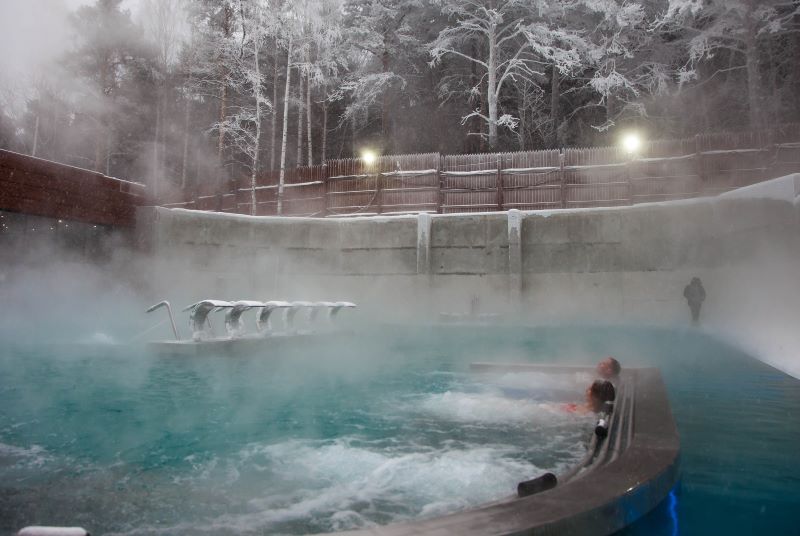
Thermal pools are heated pools that use thermal energy from the ground to heat the water. These types of pools have a heating system that pumps warm water into them, and then there is a solar cover on top of the pool that absorbs sunlight during the daytime and provides additional warmth through its insulation properties. However, they can also be equipped with gas or electric heating systems.
Thermal swimming pools are usually made of vinyl and often covered with a thermal blanket that can retain the heat inside, but they may also be built from concrete or fiberglass. Thermal swimming pool builders usually build these types of pools because they require less maintenance than other pools and can be installed faster.
What Else to Look for When Choosing a Pool: Pool Materials – a Quick Guide
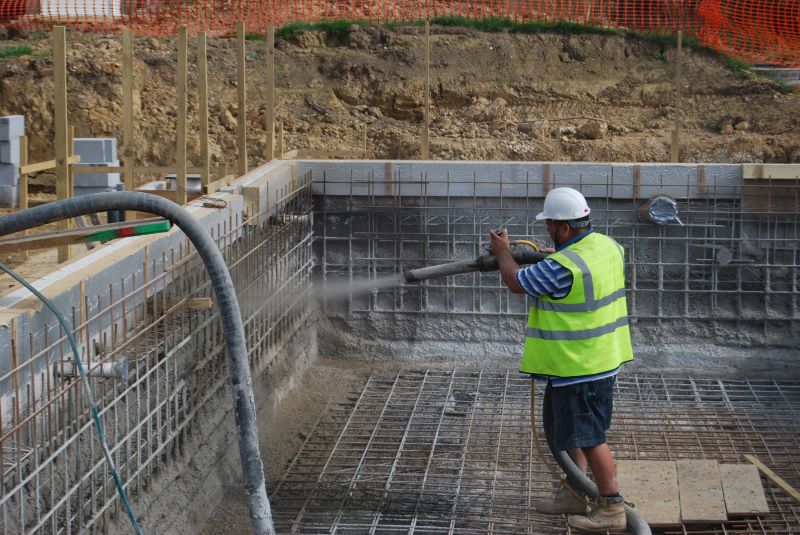
Concrete
Concrete is the most common material used for swimming pools. It is sturdy and strong, but it can be expensive to install because these types of materials are not readily available in local markets.
Concrete pools can withstand long-term exposure to harsh weather conditions such as strong wind, sun damage, and saltwater. They are generally easy to clean because there is no need for paint or varnish. However, it is important to note that they are susceptible to staining. Also, concrete pools often crack as a result of ground movement and freeze/thaw cycles, so it is recommended that the pool be repaired before any cracks become wider or more severe.
Vinyl
Vinyl pools are more affordable than other types of pools.
They come in a wide variety of colors and patterns, which means that you can find one that matches your home’s exterior decor perfectly. Vinyl is very easy to maintain, as it requires no special chemicals or treatments for the water. It also does not require any sort of liner replacement, which saves you time and money.
Vinyl pools are available in above-ground or inground styles, so there is a pool to suit every budget and preference. They may not be as durable as other types of swimming pools, but they will last for several years with proper care.
Fiberglass
Fiberglass pools are known for their durability and ease of installation. These pools can be installed above ground, below ground, or even inside your home (in the case of the indoor fiberglass swimming pool).
Fiberglass pools are usually favored by homeowners who want to spend less time maintaining their pool and more time swimming in it. Because fiberglass is an engineered material, it does not need chemicals like chlorine or salt added to the water regularly.
The only downside of these types of pools is that they tend to be pricey because they usually require professional installation.
Pool Shape and Design
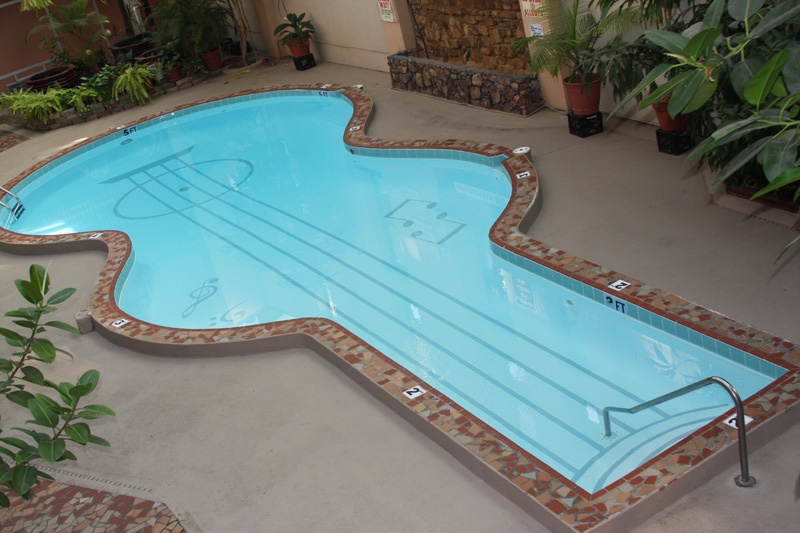
Pool shape and design is a very important consideration when selecting the appropriate pool for you. There are many shapes and designs to choose from, but the most popular ones for residential pools include:
Rectangular shaped pool
This shape is usually used as a basic design by homeowners because it offers enough room in the shallow end of the swimming area. The only disadvantage of the rectangular pool is that it doesn’t give you as many options in design, so if you want to do something more complex then this type of swimming pool might not be ideal.
Freeform pool
These are usually shaped like circles or ovals because they don’t have a defined shape. This type of swimming pool is the best if you want to have a more decorative design because it doesn’t have any straight lines or edges that can complicate your efforts to beautify your outdoor area. The only disadvantage with this kind of pool is that it takes up much more space than other types.
L-shaped pool
This type is usually used by people who want to save space, but still provide more than enough area for their family and friends to enjoy the outdoors. The only problem with this kind of design is that it doesn’t allow much space on either side so if you want to expand the pool later on you might have trouble fitting in a larger design.
Location

Shade or Sun?
When choosing a pool for your home, you will want to consider how much shade or sun the location gets. If you live in a warm climate, it is not as important to have shade. However, if the pool will be located near trees or buildings that may block the sun from hitting it often, consider getting a solar cover for your pool.
Conclusion
Pools are great additions to homes, but it is important to consider the location and type of pool you want. You should also take care of purchasing a chlorinator or salt water generator. Take a look at Saltron mini – it is a great way to keep your pool clean and clear without the use of harsh chemicals.
